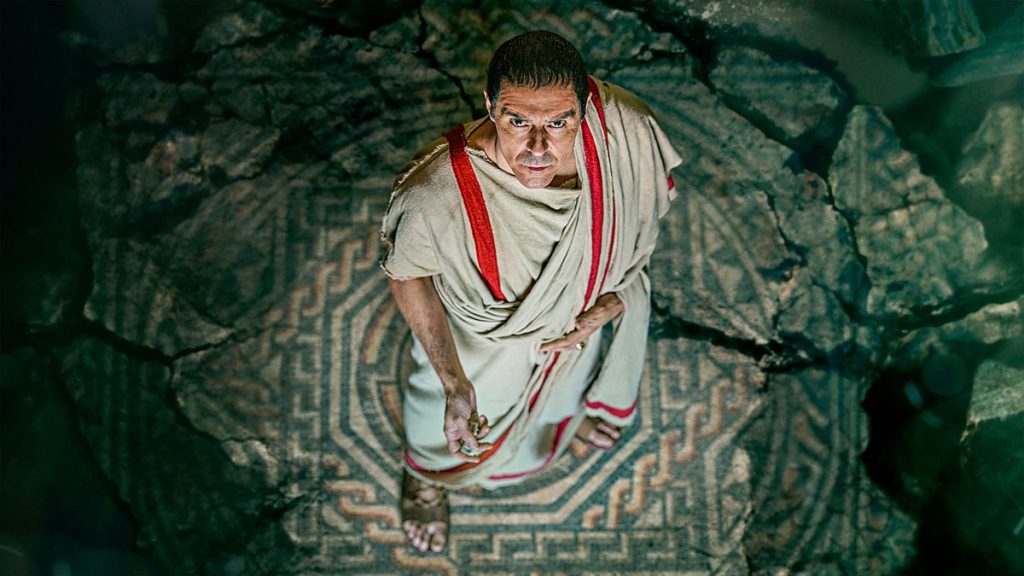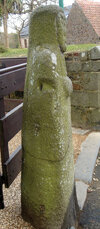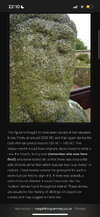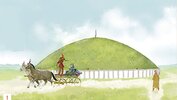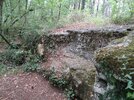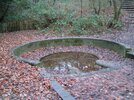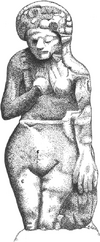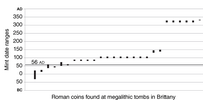The inventory of historical analogies in contemporary discourse is limited. With only a precious few common reference points, it is inevitable that these references end up being overworked. Above all, World War II is today pressed into service as an analogy for virtually every foreign policy scenario. And not too far behind, surely, is the fall of Rome (a term that people use interchangeably for both the end of Roman Republicanism and for the much later collapse of the Roman Empire).
Rome has great appeal as a model for the West and for America especially. The Romans are considered the prototypical Westerners; for America the Roman Empire represents the archetype of both Republicanism and global domination. The United States was explicitly modeled on the Roman Republic both institutionally and aesthetically. Americans are proud of both their democracy and their enormous power, and Rome stands as a cautionary tale of a state that had both of those things and lost them.
Therefore, when the BBC announced a
new docuseries about Julius Caesar, presented by respected classicists and authors Tom Holland and Andrew Wallace-Hadrill, the danger that this fascinating subject matter would become corrupted by heavy-handed allegories to contemporary politics was obvious. The loaded title –
Julius Caesar: The Making of a Dictator – flashed a warning light as to the direction that it would take. But, probably like many people, I am too much of a Romanophile to resist the siren song of Caesar on screen.
The show itself is billed as a
docudrama, which implies that it will feature dramatic re-enactments of historical events. Sadly, the reenactment footage takes the form of non-verbal vignettes. There is no dialogue from any of the historical figures depicted; every word spoken in the show comes from the narrator or from the panel of commentators. Caesar does not speak; instead, he glowers in silent anger while the narrator tells us what’s happening and interpolates motivations. This makes the series a major letdown as entertainment. It is not really a docudrama but a lecture.
The lecture, of course, is not subtle. As if the very title did not make it obvious, its goal is to convince the audience that Julius Caesar was personally and solely responsible for the end of the Roman Republic. The implication is that democracies are always vulnerable to toppling by the ambition of a single individual. Caesar becomes a particular type of political figure who needs to be neutralized wherever he is found. One of the presenters, British politician and broadcaster Rory Stewart, states explicitly that Caesar demonstrates that “a populist can corrupt an entire state.”
If one knew nothing about Roman history before watching
Caesar, you would come away largely under the impression that a stable Roman political system had been singlehandedly wrecked by one person. Or, as Stewart puts it, “This republic was overthrown by the ambitions of one man.” This is laughable; it’s not history at all. The Roman Republic was in a state of institutional crisis long before Caesar was born. The germ of the problem was that Rome’s political institutions had been originally built for a modest city-state which now found itself in control of a vast empire ringing the periphery of the Mediterranean.
In the high days of Roman Republicanism, when Rome was carving out the beginnings of its empire in Italy, a bedrock of smallholding farmers formed the heart of both the citizenry and the army. The Roman ideal was a Farmer-Citizen-Soldier who worked the fields himself, participated in civic institutions like elections and religious duties, and fought in the army when called up. The idealized example of this was Lucius Quinctius Cincinnatus, who worked his own farm into old age, until he was called up by the citizens to assume dictatorial powers in the face of an invasion. After achieving total victory in only a few weeks, he gave up his powers, and returned to his farm.
A society built on smallholding farmer-soldiers works well for a city-state fighting wars in its immediate vicinity. So long as war is confined to the Italian peninsula, the army is able to fight a campaign and then disband to care for their farms. This is why the Roman deity Mars was the god of both war and farming – he was the god of the ideal Roman citizen, who fought and farmed on a seasonal basis. Roman society had distinct campaigning and growing seasons, and Mars attended to both.
Unfortunately, this social dynamic could not be sustained as Rome’s power grew. As her imperial commitments spread ever farther around the Mediterranean rim, the farmer-soldier became an anachronism. A soldier fighting the Samnites in central Italy can get home in time to harvest his wheat. A soldier fighting Pontus in modern-day Turkey cannot. His farm would fall into disrepair and ruin, he himself could be killed, and his land could be bought up by one of the members of the Roman ultra-wealthy.
Rome’s enormous success and increasingly vast empire brought three important changes that destroyed the social basis of Roman institutions: first, long campaigns and increasing distances ended the possibility of the seasonal farmer-soldier; secondly, the deaths of huge numbers of Roman men in battle allowed the wealthy to accumulate their land; and third, the influx of slave labor from victories abroad destroyed the basis of citizen labor. The Roman social form was radically changed, from a society of farmer-soldier-citizens working their own small farms into an oligarchy of the ultra-rich, who owned vast estates worked by their slaves.
This transformation created enormous economic inequality, embittering much of the Roman populace, and planting the seeds of corruption in politics. By the time Caesar arrived on the scene, there was already a strong rift between the so-called “populists”, who sought reforms designed to prop up the common folk, and the conservatives who wished to defend senatorial prerogatives. Political violence had long become normalized. Several decades before Caesar was born, two prominent populist politicians – the Gracchi Brothers – were stabbed to death by senators. In 82 BC, a brief civil war broke out which saw Lucius Cornelius Sulla crush his adversaries at the Battle of the Colline Gate, declare himself dictator, and implement a coordinated purge of his political enemies in a wave of executions. In 63 BC, a senator attempted a coup against the reigning consuls and was summarily executed.
Elections were widely corrupted by the practice of vote buying and bribes, to the point where an effort by a few idealistic senators to crack down on
Ambitus (as political corruption was called) was met with anger by the public, which had come to see election bribes as a regular part of their income. Caesar did not plunge the republic into crisis; rather, the crisis created Caesar. So why does the BBC, two millennia later, feel the need to affix all the blame to him? Is it that our contemporary democracy finds itself in the same position as the Roman Republic and identifies with it?
BBC’s “Julius Caesar: The Making of A Dictator”
Perhaps the best answer lies in a deep-seated fixation with what I call the ‘Inverted Great Man’. Academia these days has a strong revulsion for the Great Man theory of history, which emphasizes the role of dynamic individuals who embody the great turnings of history: the Caesars, the Washingtons,
the Columbus and
the Napoleons of the world. The idolization of such figures is anathema, laced with the fear of personality cults, tyranny, and the notorious bogeyman, fascism. Accordingly, we are given the inverted form of the theory: Great Men can exist so long as they are wicked. There is no room for the conventional Great Man, who embodies the will and vitality of the people and manifests a historical turning, but there is room for the Very Bad Man, who wrecks everything and ushers in tyranny. There are no heroes but there are villains.
Hence the bizarre contemporary personality cults around figures like Donald Trump, and Vladimir Putin, not from their supporters, but from their enemies and detractors. Nobody obsessed about the Trump Presidency the way liberal news did, analyzing his gait and his facial expressions, chasing every rumor with breathless anticipation, and going apoplectic over the mean tweets. A genre of Twitter microcelebrity (the #Resistance) sprang up dedicated entirely to Trump Watching, convinced that he was either on the verge of being arrested for capital crimes and/or instituting a fascist dictatorship. In the end, of course, he did neither. Similarly, western critics ascribe phantasmagorical powers to Vladimir Putin, imagining him as something approximating a Bond villain. But they think about him far more often than Russian citizens do.
Julius Caesar: The Making of a Dictator is an attempt to give a veneer of academic legitimacy to this inverted personality cult and the tyrannical quality of the populist. The series is full of implicit references to our own time and the supposed applicability of the Caesar story to our own democracy. In the introductory sequence, the narrator warns us that “Democracy has to be constantly fought for” or else “a new Caesar will come.” Caesar has long been the archetype for the man of action and power, who cuts through corruption and decay. The intent of this series is to transform him into a dark archetype; a purely destructive force with no personal virtues or historical context.
Caesar becomes a scapegoat for the collapse of a centuries-old political system, deflecting focus away from what could have been a productive discussion about the actual causes of socio-political rot. Most importantly, it inhibits the ability to understand why Caesar was able to achieve what he did, or why powerful elements of Roman society rallied behind his successors and fought to preserve the Caesarian revolution. And this is a question worth asking. Why, more than 2,000 years after his death, does this Roman general still have his admirers? What is Caesarism? An honest reckoning with the Caesarist archetype makes it clear that Caesar arises amid a crisis of authority. The same set of motifs manifest themselves repeatedly: alienation of the population from the political class, economic inequality, willingness to transgress political norms, and the inability to form a stable government.
The BBC’s presenters clearly abhor Caesar. They speak of him with thinly veiled disgust. In marked contrast, they celebrate Cato the Younger. Cato was a Senatorial contemporary of Caesar known as one of the leaders of the anti-Caesar coalition. In the BBC docudrama, he is treated with something bordering on reverence, as a principled and uncompromising defender of Republican traditions and Roman democracy.
In fact, Cato was one of the great obstructers in political history and a major contributor to the final collapse of Roman Republicanism. He adopted a radical policy of non-negotiation and belligerency, and he worked tirelessly to convince the rest of the senatorial class that Caesar was a tyrant in waiting who needed to be stopped at all costs. Cato’s systematic obstructionism was a critical factor in alienating powerful men like Caesar and his erstwhile ally Pompey from the senate and ran deeply against Roman political norms which had long prized negotiation, debate, and compromise. Cato blocked popular legislation and appointments that could have achieved that effect. His willingness to accept dysfunction rather than compromise was an essential catalyst for civil war. The fact that
The Making of a Dictator chose to lionize Cato as a tragic hero, making a doomed last stand against Caesarism, is very telling. Rory Stewart supports Cato’s obstructionism, saying “the idea of compromising with Caesar feels emotionally to him as it might for someone in the 1930’s to compromise with Hitler.” The parallels to our own political context could not be more obvious.
And so, we come full circle. Caesar retains a great deal of cachet as a recognizable archetype of the restorative strongman, who emerges amid a crisis of government authority and bureaucratic ineffectuality, reinvigorating the state through personal rule and dynamism. Presenting him as nothing more than a cartoonish supervillain who toppled a stable republic for his own vain ambition serves as an effort to destroy the archetype at its source, delegitimizing the idea of the strongman, and making Caesar a scapegoat for the crumbling of the Roman Republic. It is politically useful, but it is also bad history. It seems odd, perhaps, to be talking about a hitpiece against a man who has been dead for 2,000 years, but that is the enduring allure of Caesar. In times of unrest, he will always be looked for, with equal measures of fear and hope.

